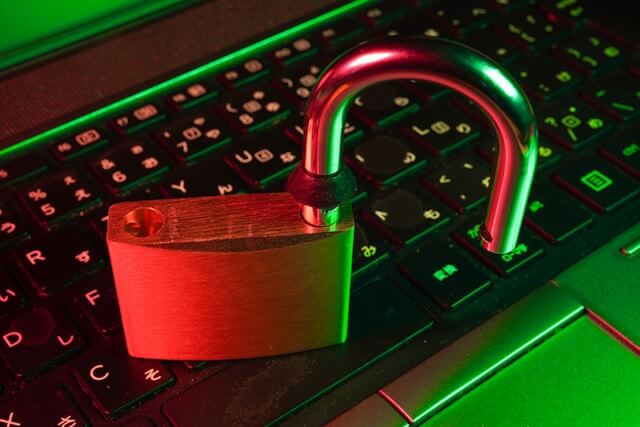Why Should Parents Monitor Their Children’s Phones?
You don’t have to be a parent to know that all these smart devices we have nowadays expose kids to various potential risks. But since you’re here, it’s safe to assume you are one. You must be wondering how to protect your kids without taking away their devices, and if monitoring them is necessary or even ethical.
Let’s dive into why keeping tabs on your kids’ digital activities can be crucial for their safety and well-being.
1. Protecting kids from online predators
One of the most terrifying things – if not the most terrifying thing – lurking in the digital corners are child predators. It’s also the most compelling reason to decide to monitor your child’s device. The internet can be a dangerous place, with individuals looking to exploit vulnerable young users.
For instance, by using live monitoring tools, parents can keep an eye on their kids’ online interactions and intervene if anything suspicious occurs.
However, it’s not just phones that need monitoring. If your children spend more time on computers, consider using PC activity monitoring software to ensure their safety across all devices. Ultimately, a comprehensive approach helps create a safer digital environment for your kids.
P.S. If you’d like more details on how to protect your kids from online predators, check out this article.
2. Preventing cyberbullying
Cyberbullying has become a prevalent issue among teenagers and young adults. In fact, studies show that more than a third of middle and high school students in the U.S. alone have experienced cyberbullying.
By monitoring your child’s text messages and social media interactions, you can spot signs of bullying early on. That way you can address the situation quickly, whether your child is the victim or, in some cases, the perpetrator.
Of course, cyberbullying doesn’t just happen on phones. PC monitoring tools can help you keep track of your child’s online communications across various platforms, giving you a more complete picture of their digital social life.

3. Managing screen time and digital addiction
Too much screen time can have a deeply negative effect on your children’s physical and mental health. However, you can step in to prevent this.
If you monitor your child’s device, you can get insights into how they actually use the device. Specifically, you can see how much time they spend on different apps and websites. Moreover, you can see whom they communicate with the most via calls or texts.
This information allows you to set reasonable limits and encourage a healthier balance between digital and real-world activities.
4. Ensuring academic focus
The digital world can be a major distraction when it comes to schoolwork and studying. Monitoring your child’s smartphone can help you take measures to keep them focused on their academic responsibilities.
For example, you can use Phone Monitor to check what they were doing during homework/study time. You can also block access to specific websites and apps and control the device remotely. This helps you foster their concentration and time management skills.
The same principle applies to computer use. PC monitoring tools can help you ensure that your child is using their computer for schoolwork rather than getting sidetracked by games or social media during study hours.
5. Identifying potential mental health issues
Online activities and interactions can sometimes reveal signs of mental health struggles that a child might not express openly. By supervising their digital life, you may be able to pick up on indicators of depression, anxiety or other mental health concerns.
This awareness allows you to initiate important conversations and seek professional help if necessary.

6. Limiting exposure to inappropriate content
Obviously, the internet is filled with content that may not be suitable for children. By monitoring your child’s phone (or PC), you can ensure they’re not accessing websites, videos, images or forums that aren’t appropriate for them. As previously mentioned, you can also block access to specific sites and apps. Moreover, you can look through the local files on the device and on social media apps to see whether they downloaded or received any unacceptable content.
Ultimately, this is a powerful asset in protecting your children from consuming and being influenced by harmful content. Besides, it can open the door to discussions that are critical to your child’s worldviews and thinking.
7. Teaching digital responsibility
Open discussions about monitoring can create teachable moments about the digital landscape and online safety. You can have meaningful conversations about responsible internet use, privacy, and the potential consequences of online actions.
Aside from teaching your child how to use devices responsibly, this can also strengthen the transparency and trust in your relationship with them.
8. Protecting personal and financial information
While children can be incredibly observant, they may not always understand the importance of keeping personal and financial information private. It simply comes down to their lack of maturity and experience.
By monitoring their digital activities, you can ensure they’re not accidentally sharing sensitive data that could lead to identity theft or financial fraud.

9. Tracking location
One of the most popular and perhaps most important features of any phone monitoring app is GPS tracking. Using this, you can be aware of your child’s location at all times. The peace of mind it gives you when your kids are out and about is invaluable.
In addition, location tracking is crucial in the case of an emergency. While nobody wants to even think about something bad happening, it’s good to know that there’s a way to intervene quickly if it does.
10. Fostering communication
You would expect that monitoring your child’s devices would lead to resentment, anxiety and mistrust on their end. While this can be true, it depends on how you approach the matter. It’s critical to be open and supportive, not aggressive and interrogative.
In fact, when done properly, using monitoring tools can actually lead to more transparent communication between parents and children.
Firstly, if your kids know you’re supervising their online activities, they’re more likely to approach you with questions or concerns about their digital experiences. Secondly, they can become more comfortable discussing sensitive topics in general. This openness can significantly strengthen your relationship.
12. Preventing addiction to games or gambling
Online gaming and gambling can be addictive, especially for young, developing minds. Monitoring your kids’ phone or computer usage can help you identify if they’re going down this road as well. This awareness allows you to act early and help your child develop healthier digital habits.
Finding the right balance
While the benefits of monitoring your children’s devices are clear, they’re worth very little if your approach is bad. It’s essential to strike the right balance between protection and privacy. Here are a few tips to consider:
- Be transparent: Calmly and openly explain to your children why you’ve decided to monitor their devices.
- Respect growing independence: As your children get older, consider gradually reducing the level of monitoring to respect their increasing need for privacy.
- Use monitoring as a teaching tool: Don’t use the information you gather as punishment. Instead, use it as an opportunity to educate your children about digital safety and responsibility.
- Stay involved: Don’t rely on technology alone. Maintain open communication with your children about their online experiences and be an active participant in their digital lives.
The bottom line
In conclusion, monitoring your children’s phones (or PCs) is an important part of modern parenting. It’s the most powerful asset you can have for protecting your kids from online dangers, managing their screen time, and guiding them towards responsible digital citizenship.
Create a safer digital environment for your children while teaching them valuable lessons about online safety and responsibility.
Just remember: The goal is not to spy on your kids or invade their privacy, but to ensure their security and well-being in an increasingly complex digital world. With the right approach and tools, you can help your children navigate the online world safely and confidently.

